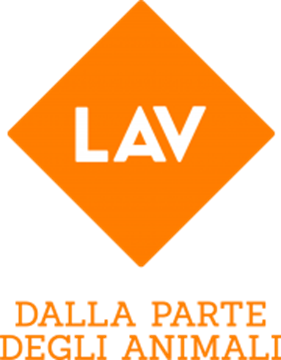Click on this link below to see associated photos and video:
Animals at troubled zoo go missing, die or suffer cold and disease, campaigners claim (msn.com)
Animals went missing, died and suffered disease because of continued failings at a zoo once dubbed “the worst in the UK”, campaigners say.
An “emaciated” meerkat struggled to find enough food, bear cages were left uncleaned for too long and a baby kangaroo drowned at Cumbria Safari Zoo, it was claimed.
Other kangaroos were thought to have a disease and lemurs were injured because their “overcrowded” enclosures caused aggression, according to Freedom for Animals.
An activist for the animal-rights organisation who posed as a volunteer helper at the zoo for nearly a year found what they said was a “shocking” string of animal-welfare guideline violations, including “appalling” conditions, mistreatment and neglect.
Bosses at the zoo near Dalton, which is thought to house about 1,000 animals, insist they have no concerns over the work of their vets, who are “unrivalled” in their field. They also claim much of the video “pieces together snapshots in time, many pre-dating” their running of this zoo.
In 2013, a keeper at the site, then called South Lakes Safari Zoo, was mauled to death by a tiger, leading to a fine of £297,500 with costs for health and safety breaches.
Four years later, a council report revealed 486 animals had died between 2013 and 2016.
Barrow Council refused to renew the zoo’s licence after inspectors raised concerns, but a firm formed by the staff took over managing the site and the council granted Cumbria Zoo Company Ltd a licence.
But concerns remained, and in 2022 a report by wildlife charity the Born Free Foundation concluded that the zoo overfed giraffes, left sloths out in the cold and confined rhinos to tiny stalls.
Now Freedom for Animals, which carried out a fresh investigation, says nothing has changed, despite the change of ownership.
The group claims a missing baby kangaroo was found drowned in a lake – described as “an unforgivable fatality that could have been avoided”.
A keeper was secretly captured on film talking of how one kangaroo had died, possibly of “lumpy jaw”, a bacterial disease linked to stress, poor diet or faecal contamination at feeding stations.
The campaigner investigating also filmed an “emaciated meerkat struggling to find food and warmth in its enclosure”, and its tail appeared injured.
Meerkats in pens that were said to be cold and draughty were filmed huddling together under heat lamps for warmth.
It was too difficult to get Andean bears out of their enclosure to clean it, another worker was recorded saying, and they added: “We’re trying to do it every other day because this pair are a pain in the arse.”
As a result, the cages – shared by lemurs – got dirty with waste very quickly, it was claimed.
And in one case mouldy food in those cages was left rotting, the footage suggested.
According to one keeper, a lemur was presumed to have frozen to death after failing to return indoors overnight.
Lemur mothers often abandoned their babies, while overcrowding caused by aggression led some to attack others, keepers were recorded admitting.
Some suffered injuries that required stitches, and one keeper said: “They’ve got big teeth so they do a fair bit of damage to each other.”
Freedom for Animals questioned why the zoo was still breeding them in an “already overcrowded environment that is clearly causing significant illness and injury”.
One lemur, called Bruce, vanished regularly, the campaigner said, after filming a keeper hunting in trees for the animal. A keeper said another lemur found dead “had stuff on his liver”.
Footage showed visitors feeding a giraffe on what the activists said was more than 300 pieces of carrot – a high-sugar food not in the animal’s natural diet. The giraffe was later filmed twisting its neck unnaturally.
Carrot-feeding is arranged twice a day, every day, according to the investigators.
It was also claimed flood damage to an electric fence left baboons, who normally spend most time outdoors, locked inside for almost five days.
The undercover investigator said one keeper told how the baboons’ housing was so “grim” that the animals chewed at the wooden walls.
The council, which issues zoo licences, has previously raised some of the concerns.
Freedom for Animals wants all the animals moved to sanctuaries.
“It is appalling that animals in this country are being treated this way and is a gross breach of the Animal Welfare Act and the Zoo Licensing Act,” a spokesperson said.
Karen Brewer, chief executive of Cumbria Zoo Company Limited, said: “The organisation making these allegations is anti-captivity by nature. We continue to welcome feedback, advice and guidance from those qualified to comment on the way in which the zoo is run.
“We are aware of a video now in circulation that pieces together snapshots in time, many pre-dating our running of this zoo, as do many ‘facts’ that surface in these reports.
“We have no concerns over the standard of veterinary care given to the animals who reside with us. Our veterinary team are internationally recognised and unrivalled in their field.”
The Independent has asked Barrow Council to comment.







